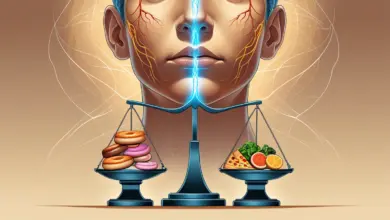Do Vasectomies Lower Testosterone? Separating Myths from Facts

The idea that a vasectomy might lower testosterone is a common concern. But here’s the truth: it doesn’t. Medical research consistently shows that vasectomies have no impact on testosterone levels or overall masculinity. Testosterone is produced in the testicles and a vasectomy doesn’t interfere with that process. In this article, we’ll address the science behind these concerns, debunk myths, and provide clarity for men considering the procedure.
Understanding Vasectomy
For many men, the decision to undergo a vasectomy can feel significant and personal. It’s a procedure often surrounded by questions and misconceptions. In this section, we’ll look closer at what a vasectomy involves and why men choose it as their preferred contraceptive method.
What is a Vasectomy?
A vasectomy is a safe and highly effective form of male birth control that works by preventing sperm from being present in semen. The procedure involves cutting or sealing the vas deferens—the tubes that transport sperm from the testicles to the urethra.
The surgery is typically performed under local anesthesia and takes about 30 minutes. During the procedure, small incisions or punctures are made in the scrotum to access the tubes, which are then either tied, cauterized, or clipped to block the sperm. Recovery is quick, and most men return to their normal routine within a few days. Curious about specifics? The Mayo Clinic provides excellent details on the process.
Post-surgery, the testicles continue to produce sperm, but the sperm is absorbed by the body instead of being included in ejaculate. It’s worth noting that the semen will look the same, and the testosterone for women weight loss concerns or issues with masculinity are myths unsupported by science.
Reasons for Choosing a Vasectomy
Why do men choose a vasectomy over other contraceptive options? Here are some key reasons:
- Permanence: Vasectomy is a lifetime solution for contraception, making it ideal for men certain about not having more children.
- Effectiveness: It’s over 99% effective, making it one of the most reliable contraceptive methods available (Hopkins Medicine).
- Simplicity: It’s a quick outpatient procedure with minimal downtime and low risk of complications.
- No Impact on Hormones: Vasectomy doesn’t affect testosterone levels, sex drive, or ejaculation. For clarity on how this works, Planned Parenthood explains the science behind these facts.
- Cost-Effective: Compared to long-term use of other birth control methods, it’s a financially practical choice (Urology Medical Group).
Many men also consider vasectomy an empowering step toward shared responsibility in family planning. While the choice should always be informed and thoughtful, the benefits—both physiological and practical—are clear.
The Relationship Between Vasectomy and Testosterone
Concerns about the potential impact of a vasectomy on testosterone levels are common among men considering this form of permanent contraception. Testosterone plays a vital role in male health, influencing everything from energy and libido to muscle mass and bone density. Let’s take a closer look at what science and experts have to say about this topic.
Current Research Findings
Multiple studies have examined the link between vasectomy and testosterone levels, offering consistent findings. Research indicates that vasectomy does not negatively affect testosterone production. This is because testosterone is produced in the testicles and released into the bloodstream, a process completely untouched by the vasectomy procedure.
- A 2018 study revealed that vasectomy had no long-term effect on key sexual hormones, including testosterone and PSA (prostate-specific antigen). This underscores the idea that the procedure is physically neutral regarding hormonal fluctuations.
- Earlier research highlights similar outcomes. For example, a PubMed study found no statistically significant differences in testosterone levels when comparing vasectomy patients to controls, even after 20-plus years.
- The perception of reduced testosterone post-vasectomy is often rooted in misinformation. A recent analysis further affirmed that the procedure does not affect testosterone levels, laying such myths to rest.
These scientific studies collectively debunk the notion that vasectomy diminishes masculinity or impacts hormonal health.
Expert Opinions
What do specialists say about vasectomy and testosterone? Urologists and endocrinologists consistently affirm the findings of these research studies, often explaining the science behind them in simple terms.
- The American Urological Association’s guidelines emphasize that vasectomy doesn’t interfere with hormone production. Testosterone, follicle-stimulating hormone (FSH), and luteinizing hormone (LH) remain unchanged.
- Dr. Koushik Shaw, a Texas-based urologist, states that “a vasectomy has no impact on testosterone or sexual function, as it doesn’t interfere with the testicles’ ability to produce hormones.”
- Endocrinologist inputs further clarify the fear surrounding testosterone decline after vasectomy. A review on Medical News Today highlights that the confusion often stems from misinformation rather than scientific data.
In summary, both medical research and expert testimony overwhelmingly agree that vasectomy is a safe choice for contraception without hormonal consequences. Scientists and healthcare professionals align strongly on this topic, reassuring men who might otherwise worry about the procedure interfering with vital aspects of their health.
Myths and Misconceptions
When it comes to vasectomies, misinformation can spark unnecessary fear and hesitation. Let’s set the record straight by addressing two of the most common myths surrounding this procedure.
Myth: Vasectomies Lower Testosterone
Contrary to popular belief, vasectomies do not lower testosterone levels. This is a myth that has been soundly debunked by medical research. Testosterone production occurs in the testicles and is completely independent of sperm transport. A vasectomy targets the vas deferens, which are the tubes responsible for carrying sperm, and has no effect on hormonal activity.
- A 2018 study emphasized that vasectomies have no long-term effects on testosterone or other key hormones related to male health.
- Similarly, a 1995 PubMed study found no significant differences in testosterone levels between men who underwent vasectomies and those who didn’t, even after 20 years.
- Experts like those at Medical News Today underline that fears of diminished masculinity stem from outdated beliefs rather than any medical truth.
In fact, testosterone levels remain intact, helping to maintain energy, muscle mass, and libido. Men can confidently approach a vasectomy with the assurance that their hormonal health will stay consistent.
Myth: Changes in Sexual Function
Some fear that a vasectomy will reduce their libido or impair sexual performance. This misconception often prevents men from considering this highly effective contraceptive method. However, there’s no scientific evidence to back these claims.
- The National Institute of Child Health and Human Development clarifies that vasectomies do not interfere with sexual drive or function because they don’t impact testosterone production.
- A Philadelphia Urology article confirms that libido, erectile function, and the overall sexual experience remain unchanged after the procedure.
- Urologists also dispel this myth. According to the Urology San Antonio clinic, sex post-vasectomy is no different in terms of quality or satisfaction. In some cases, the peace of mind brought by permanent contraception can actually enhance intimacy.
To sum up, the idea that a vasectomy negatively affects sexual health is simply unfounded. Men remain fully capable of enjoying a healthy, active sex life after the procedure. Let’s not allow these myths to overshadow the benefits of making informed, confident choices about long-term contraception.
Testosterone and Overall Health
Testosterone is often seen as the biological engine that drives many aspects of male health. Produced primarily in the testicles, it impacts growth, physique, and even emotional well-being. To fully understand its role and what happens when levels drop, let’s explore its functions and potential implications for health.
Role of Testosterone in the Body
Testosterone is central to defining what makes us, well, us. In men, its influence starts early, laying the groundwork for male characteristics and then maintaining these traits throughout adulthood. But its effects go much deeper than just physical appearance.
- Development of Male Features: Testosterone is responsible for the development of secondary sexual characteristics, such as deeper voice, facial hair, and increased muscle mass. These hallmark features emerge during puberty, triggered by rising testosterone levels (Cleveland Clinic).
- Skeletal Strength: Ever wondered why men tend to have bigger, denser bones on average? That’s testosterone at work. It helps maintain bone density and strength, reducing the risk of fractures and osteoporosis as you age (PMC Study).
- Building Muscle: Testosterone fuels protein synthesis, the process that helps repair and build muscle. Whether you’re hitting the gym or doing everyday tasks, this hormone is key in enabling strength.
- Sex Drive and Reproductive Health: Healthy testosterone levels are essential for sexual function. They influence libido, sperm production, and even erections (Harvard Health).
- Mood and Cognition: Testosterone is closely tied to mental health. Low levels can affect mood and may even contribute to depression or brain fog. It’s no surprise many men report feeling sluggish when their testosterone dips.
From maintaining energy to ensuring overall vitality, testosterone functions much like a conductor orchestrating all aspects of male health. Without it working in harmony, things can quickly feel off-balance.

Photo by Polina Tankilevitch
Impact of Low Testosterone Levels
When testosterone levels drop, the effects can manifest as a noticeable shift in overall wellbeing. This decline, often referred to as low testosterone or low-T, can be gradual or result from specific health conditions.
Here’s how low testosterone affects the body and mind:
- Physical Symptoms:
- Decreased muscle mass and strength.
- Increased body fat, often around the abdomen.
- Weakening bones, making fractures more likely.
(WebMD)
- Sexual Health:
A sharp decline in sex drive and performance is one of the earliest indicators of low testosterone. It can sometimes lead to erectile dysfunction or infertility (Medical News Today). - Energy and Stamina:
- Persistent fatigue, even with adequate rest.
- Trouble maintaining the level of physical activity you’re used to.
- Emotion and Mental Health:
- Feelings of sadness or depression.
- Irritability or mood swings.
- Memory challenges or difficulty concentrating (Healthline).
- Long-Term Risks:
Prolonged low testosterone can increase the likelihood of developing cardiovascular diseases and Type 2 diabetes (Cleveland Clinic).
Low testosterone is not just about changing how you feel day-to-day—it has broader implications for your long-term health. The signs may start small, but they can snowball into significant challenges if left unaddressed.
Recognizing these effects not only provides insight into the vital role testosterone plays but also underscores why balance in hormonal health is crucial.
Key Takeaways
Vasectomy and testosterone are often mentioned together in conversations about long-term male contraception, but there’s a need to separate fact from fiction. Here’s what you need to know to make informed choices about your health.
Vasectomy Does Not Lower Testosterone Levels
A vasectomy targets the vas deferens—the tube that carries sperm—not testosterone production. This means:
- Testosterone continues to be produced in the testicles at normal levels.
- Studies, such as this PubMed analysis, show no statistically significant testosterone reduction post-vasectomy.
- Expert analysis from Modern Urology confirms the procedure does not impair male hormonal balance or sex drive.
If you’ve ever worried about testosterone drops diminishing masculinity, rest assured that medical science disproves this connection.
Testosterone’s Role in Male Health Remains Intact
The hormone testosterone is vital for maintaining energy, libido, muscle mass, and bone density. Because vasectomy doesn’t interfere with its production, men can enjoy:
- Stable physical health—no change in muscle building or bone density.
- Intact mental well-being and mood support, critical components of testosterone function (Medical News Today).
Addressing Myths Promotes Confidence in the Procedure
Misinformation can lead to hesitation. Knowing the facts:
- Dispels fears: Vasectomy is a safe option for permanent contraception (CU Medicine).
- Enhances decision-making: Men can proceed without concern for hormonal or sexual health impacts.
It’s about being equipped with accurate knowledge to confidently consider a vasectomy as a practical, stress-free solution.
Healthy Testosterone Levels Benefit Weight and Energy in Women Too
Although unrelated to vasectomy, the keyword “testosterone for women weight loss” highlights the growing interest in this hormone’s effects on fat metabolism. Women utilizing testosterone therapy see:
- Improved lean muscle mass, which facilitates higher calorie burn (BlueSkyMD).
- Enhanced energy, making it easier to stay active while pursuing weight loss goals (Train Forever Strong).
Understanding the hormone’s role across genders helps demystify its impact on overall health.
These key insights aim to clarify vasectomy’s neutrality on testosterone while emphasizing the lasting benefits of knowing your body and its functions.
Conclusion: Do Vasectomies Lower Testosterone?
Making informed decisions about vasectomies requires separating myths from facts. With accurate information backed by research and expert opinions, it becomes clear that vasectomies are a safe, effective procedure that doesn’t compromise testosterone levels or overall male health. Concerns about masculinity or hormonal imbalance tied to vasectomies are baseless, as testosterone production remains unaffected. For men considering this method of contraception, understanding the realities can help foster confidence and clarity in their decision-making process.
Medical findings across studies consistently highlight that a vasectomy does not interfere with testosterone production. Testosterone levels are regulated by the testicles and bloodstream, independent of the vas deferens, the sperm-carrying tubes altered in a vasectomy. Hormone production continues uninhibited, ensuring stability in energy, libido, and muscle mass. Common misconceptions rooted in outdated beliefs or misinformation can make the decision daunting, but science eliminates these fears. If anything, focusing on accurate resources allows men to feel more secure in choosing a long-term solution for birth control.
For additional insights into how vasectomies influence testosterone or sexual health, see this study on vasectomies and testosterone and myth-debunking resource.
If this blog post resonates, stay tuned for deeper exploration on testosterone’s roles and its impact on health functionality moving forward.





